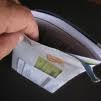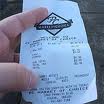Bill Organizers
Save Time & Money!

BILL ORGANIZERS
Save Money Simply By Creating Good Bill Paying Habits
Bill Organizers: Got bills? Ugh!
No one likes paying bills but, unless you live on a tropical island by yourself, bills are a fact of life.
While no one enjoys paying bills, it is possible to make this routine chore easier and more efficient. One of the reasons that people struggle with paying bills is because they do not have a good bill organizer system. The other reason may be that they have too many bills at the end of their money!
You might think, “So what? It’s no big deal if I happen to miss a bill or pay it late?”
Not true!
Many relationships fail over money issues. Headaches, heartaches and loss of valuable time and money are just some of the results of missing payments or paying bills late.
Also, why pay more than you have too? Fees, penalties and bad reports on your credit are just a few of the headaches that can happen. Services can be cut off and additional “service restoration fees” can also result. You’re giving these people more of your hard-earned money. Why? It’s like working for them for free!

Here’s another factor to consider:
Paying bills late can also result in even more loss of money in higher interest rates. Most companies (banks, utility companies, etc.) report bill paying habits to the three credit bureaus (Experian, TransUnion & Equifax).
A bad credit rating can cost you even more money as bad ratings equal higher interest payments. Higher interest payments mean those purchases are costing you a LOT more than you paid for them which also means less money in YOUR pocket each and every month!

There is NO one right way to set up a bill organizer system that works for everyone. However, the handy bill organizer tips below will give you a start. Read these tips, figure out what works best for you and your family and apply them each and every month.
These tips should get you through the bill-paying chore quickly, efficiently and get on with your life!

Bill Organizer Tips
Bill Organizer Tip No. 1:
Assign One Person to Handle the Finances
If you’re married or have a roommate, assign one person to take care of the finances. Confusion tends to occur when one or more people are paying the bills and writing checks. The outcome of the confusion can result in bills being over-looked, paid twice and/or a bounced-check or two on occasion. Assigning one person to be primarily responsible for handling the finances will help eliminate the problem. The person paying the bills should probably be the person who is better at numbers.
ONE CAUTION – make sure you BOTH know what’s coming in and going out each month as well as the name, address and account numbers of the financial institutions and any other important information. In the event of ill health or death, it will take less time for the other person to come up to speed on the financial matters.

Bill Organizer Tip No. 2:
Create a Home for Your Bills
When the bills arrive, don’t pile them up with the other mail. Create a home for your bills and put them there on the day you receive them. Create a system that works for you: bins, baskets, accordion file or other bill organizers. Having a specific place to store your monthly bills will keep them from getting accidentally trashed with the junk mail or cause you to search for them when it’s time to pay the bills.

Bill Organizer Tip No. 3
Open the Bills Immediately
Open the bills the day they arrive. Check them for accuracy. Remove excess paperwork (advertising, etc.) and shred anything that has personal information on it (name, address, account number, etc.). File the bills in your system, that you created in Tip No. 2, by due date.

Bill Organizer Tip No. 4:
Calendar All Due Dates
Immediately after opening the bills and getting rid of the excess junk (Tip No. 3 above), mark the due dates of each bill on a wall calendar, Finance/Bill Paying App, Outlook Calendar or other calendar system that works for you. Check your calendar regularly (daily or at least weekly). Be sure to pay the bill so that it arrives well BEFORE the due date. using a Finance/Bill Paying App or Outlook, you can schedule this as a Task with a Reminder. Schedule your reminder to prompt you 15 days before the bill is due. Outlook will have the reminder Pop Up on your computer to help remind you to pay the bill.

Bill Organizer Tip No. 5:
Keep Necessary Bill-Paying Supplies With Your Bills
This includes such items as envelopes, stamps, return labels, pens, calculator, stapler, etc. Having everything in one place ready to go will make the chore run more smoothly and save you time running around collecting your supplies each time you pay the bills. Many bill organizer systems have drawers to store bill paying supplies.
Alternatively, many people pay bills online. Do what works best for you. If paying online, be sure to keep a record of the payment in some manner on your system. Don't rely on the system of the Payee.
Bill Organizer Tip No. 6:
Pay Bills in the Same Location Each Time
Having a place that you consistently go to when paying your bills will help you create a more efficient system. It doesn’t matter whether it’s your home office desk, the kitchen table or a lap desk in your easy chair. Pick your favorite place and keep both the bills and bill paying supplies handy.
Bill Organizer Tip No. 7:
Pay Your Bills at a Set, Specific Time
Paying your bills at a set, specific time is also a party of creating an efficient and a regular routine that will help you stay on track. You can schedule your bill paying time around the time you receive your paychecks (weekly, bi-weekly, monthly, etc.).

Bill Organizer Tip No. 8:
Record Your Payments Immediately
If paying your bills “the old fashioned” way with checks, be sure to record the payments in your check register as you go. Don’t forget to include automatic withdrawals you may have set up (charitable contributions, car payments, insurance payments, etc.).
If you are using a more modern method such as a spreadsheet, bill paying app, etc., make sure you are keeping track of who you paid, when you paid it and for what you are paying. If it may be a tax-deductible item for income tax purpose, make a note of that as well.
Bill Organizer Tip No. 9:
Auto Withdrawals, Paying Bills Online, Apps
Auto Withdrawals: Many companies (utilities, insurance, auto payments, charitable contributions, etc.) offer you the opportunity to have your payment automatically withdrawn from your checking account. This can be a great way to be sure your bills are paid on time as long as you keep sufficient money in your account to cover the expenses. Make sure you record these or keep up with them in some way so to help you track your expenditures.
Online Payments: Another alternative is paying your bills online. Many banks now offer this as a free service (or with a minimal fee). It saves postage and most systems allow you to set these as a regularly occurring payment with reminders to keep you on track. Just be sure you enter these automatic withdrawals and/or online payments in your checkbook register. If paying online, it is usually recorded for you to see automatically.
Bill Payment Apps: If you chose to use a bill paying app of some kind, proceed with caution and due your research first! Unfortunately, hacking is so common these days. Ask yourself some questions before using the app. Is the company reliable? Do they protect your identity and personal information, etc. Be careful! It's a dangerous world out there!

Bill Organizer Tip No. 10:
Check Balances Monthly
The only way to be sure how much money you have and avoid overdraft fees, late payment fees and penalty payments is to keep up with your balances. There are several ways to do that.
- The old school method would be to balance your checkbook. Instructions on how balance your checkbook are usually included on the back of your bank statement.
- If you pay bills online and/or elect to receive electronic bank statements instead of paper copies, you can keep track of your bank balances by using a spreadsheet or software program designed to help you keep track of your funds.
- Either way, you need to know how much came in and how much went out and what’s left in your account on any given date.

Bill Organizer Tip No. 10:
Store your receipts.
Be sure to keep receipts of purchases, copies of bills paid and other important receipts by year/month in a file or other system where you can easily find them if you should need proof of payment. Make new file folders for every year.
You don't have to keep a hard copy of the receipt, there are many scanners that allow you to keep pdfs of the receipts and file them in an organized manner for easy location and retrieval.
This is especially important if you are self-employed or work for a company where you have to submit expense reports.
Bill Organizer Tip No. 11:
Keep good notes.
Be sure to keep good notes on any discrepancies including dates, phone numbers and names of people you spoke with as well as what was discussed and decided upon. This will come in handy in the event you need proof of decisions that were agreed upon. Keep this information with the bill so you can easily find it if questions arise.

Bill Organizer Tip No. 12:
Create a Monthly Budget.
Yes, I said the “B” word! I know the thought of creating a budget is about as welcome as a root canal! However, setting a simple budget doesn’t have to be complicated. It will help you know how much money is coming in and where it is going. It will allow you to make adjustments.
If you don’t have a record, you may be over-spending on one or more areas and sabotaging your ability to achieve your financial goals. Saving for a home, retirement, etc. is much easier when you have a record to work from. A budget doesn’t have to be complicated. A simple as a computer spreadsheet works just as well as a complicated computer program.
For help creating budgets, tips on setting financial goals, learning how to handle your money, free resource downloads and other helpful information, visit Crown Financial Ministries.
Bill paying --- No Worries!!
Click the lavender bar on the left and subscribe to the RSS feed to be notified of new listings as they become available.
Did you like this? Please share it! Thanks in advance.
Have A Great Tip Regarding Bill Organizers?
Do you have a great tip about Bill Organizers? Share it!
Return to top of Bill Organizers
Home|About Me|Site Map|Contact Me|What's New?|
No matter where you are in life (stay-at-home mom, full or part time employee, retired, etc.) you can make a good income with a website. Whether you write books, make crafts or something else, I highly recommend SBI. It's the reason for this website. Check it out below and become another solopreneur!
Hello! This is Shelly Morton, the author of this website. I know you hear a lot of hype about making money from home and building a successful website. I speak from experience as a solopreneur, I have succeeded with Solo Build It! There is simply no better way to build an online business. Nothing else compares. It's not a "get rich quick" scheme. SBI provides you with all the tools and tips you need to be successful. You put in the work and SBI will help you succeed! SBI is simply the BEST way to get started for any "solopreneur."




